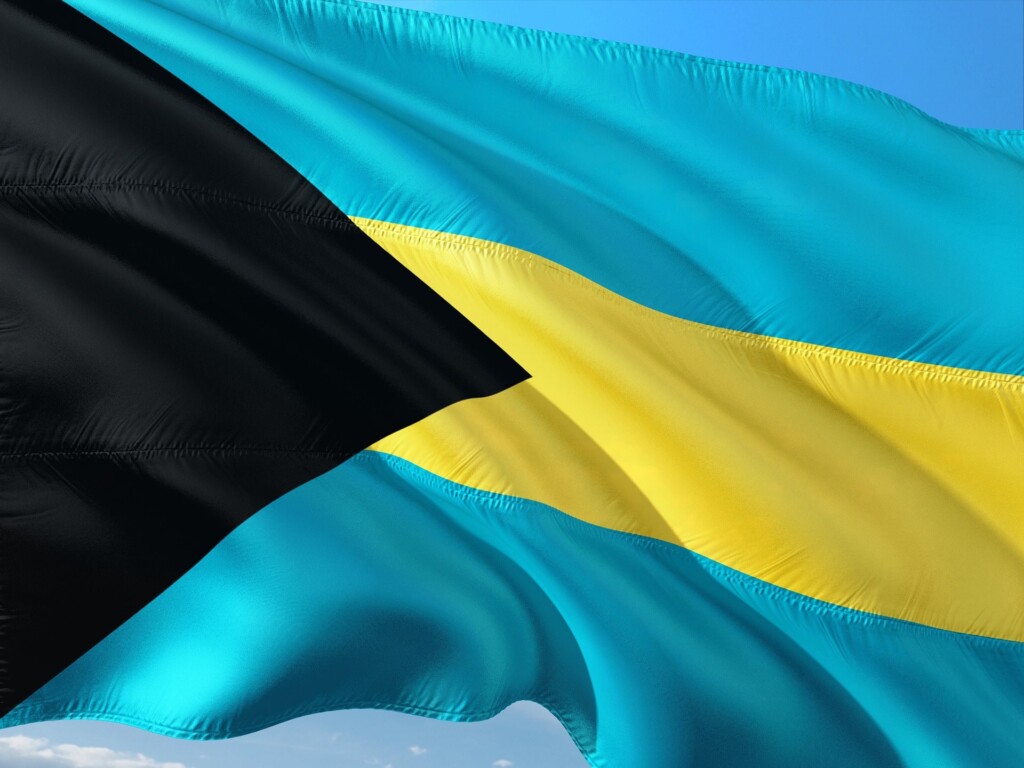Ever since its announcement in April 2023, the revised DARE Bill has been referred to as innovative for the crypto industry. Put together by The Bahamian Securities Commission with support from industry experts, international committees including the Global Financial Innovation Network (GFIN) and the Financial Action Task Force (FATF), and an in-house unit ‘dedicated to policy and research’, the proposed bill aims to amend its predecessor, the 2020 DARE Act.
This piece examines aspects of the DARE bill beyond its provision of comprehensive regulations for the crypto industry, which the legislation indeed provides with considerable clarity and definition.
In order to be an innovative set of regulations in ways other than its existence, consider if the following principles are also met:
- Does the proposed bill show an understanding of the subject from those putting the bill together?
- Does the proposed bill show a commitment to uphold financial freedom, privacy, access to and support of innovation for individuals and companies alike?
- Does the proposed bill show adaptability as is necessary for a continuously evolving industry?
These standards will set the DARE bill apart from not only authorities of countries where comprehensive regulation is completely lacking, but those where access to financial innovations is deliberately limited, emphasising The Bahamas’ intention to achieve safety and prosperity for its citizens in the robust crypto industry.
If passed, the DARE Bill should come into effect by the end of Q2 2023.

The purpose of DARE
The DARE Bill is an overarching legislative framework for investors (the term used to mean retail investors and crypto users alike), developers and businesses in the crypto industry. The purpose of the bill is to facilitate market development while mitigating risks and protecting investors.
The Bahamas are in no denial about the potential of the crypto industry. By increasing knowledge and understanding of digital assets in The Bahamas, and establishing a concrete yet adaptable governance of the industry, lawmakers hope to positively impact “entrepreneurs, the work force, investors, developers, and ultimately financial inclusion and financial freedom,” said SEC Executive Director, Christina Rolle.
The DARE Bill, along with education initiatives including financial literacy classes in public schools and the establishment of digital asset courses (which include coding) at the University of The Bahamas in the works, is designed mainly with the security and success of retail investors in mind. “We believe this effort can help Bahamians make informed choices about their finances and see investing as a path to building wealth.”
What’s new in the DARE Bill 2023?
The DARE Bill is an amended version of the the DARE Act of 2020, enhancing the regulation with:
- Expanding the definition and list of digital asset business activities;
- Increasing the protection of consumers and investors;
- Clarifying the requirements applicable to custody and custodial wallet services;
- Strengthening financial and reporting requirements related to the operation of digital asset exchanges;
- Reinforcing requirements for providers of advisory services and management of digital assets;
- Introducing a dedicated disclosure regime with respect to the provision of staking services;
- Establishing a regulatory framework for stablecoin issuers;
- Providing comprehensive regulation of stablecoins.
These amendments focus on the security of customers and investors, as well as ensure that various services providers within the crypto industry face no trouble understanding and complying with the law.
1) Does the proposed bill show an understanding of the subject from those putting the bill together?
Early on it was made clear that DARE wasn’t cut and glued together from an assortment of other regulations pertaining to securities. Among those consulted and involved in the making of the bill were the aforementioned GFIN, the purpose of which is development of regulations supporting financial innovation on a global scale, rather than to protect customers by limiting legal access altogether.
That is not to deny that risk management and investor protection weren’t the core objective. In reality, the global majority lacks crypto literacy, which makes scams and fraud possible. Putting stricter measures in place while The Bahamians are encouraged to get well-versed with the industry is a great way to ensure the delayed gratification knowledgeable crypto hodlers associate with their assets.
The approach to revising the 2020 DARE Act was certainly proactive. The consultation paper offered a substantial list of definitions, including the difference between tokens which are and are not securities. Furthermore, cryptocurrencies are not really even recognised as currency.
“Virtual Currency Token” means a digital representation of value which can be digitally threaded and functions as — a medium of exchange; a unit of account; or a store of value, that is not a digital currency, and does not have legal tender status or carry any security of guarantee in any jurisdiction;
To compare, the definition of “digital currency” in the consultation paper is a “digital form of currency issued by a government or a central bank”. Cryptocurrency is to remain a “digital asset” — a “digital representation of value or a right which may be transferred and stored electronically, using distributed ledger technology or similar technology.”
This compromise also makes sense in context, considering that privacy tokens, algorithmic stablecoins, and proof-of-work (PoW) mining are prohibited. But are those limitations a breach of the principles of DeFi? Some would argue that any government regulation inherently breaches the ideas of financial freedom. In this case, the setting up of a business in crypto, such as a centralised exchange or a brokerage firm, should be equally-frowned upon. In considering whether the proposed bill is actually “good” for the crypto industry, one must consider that said industry is largely made up of businesses trying to comfortably register somewhere. The Bahamas show conditional signs of welcoming, and the educated efforts put into those conditions warrants appreciation.
2) Does the proposed bill show a commitment to uphold financial freedom, privacy, access to and support of innovation for individuals and companies alike?
So, privacy tokens, algorithmic stablecoins, and proof-of-work (PoW) mining are banned. Why? Privacy tokens are a type of cryptocurrency which provide enhanced privacy and anonymity for their users. Since cryptocurrency typically is only pseudonymous, privacy tokens are designed to employ cryptographic techniques which obfuscate transaction details altogether, making them untraceable. Note that it is the issuance of privacy tokens from within The Bahamas that is “expressly prohibited”, otherwise use them as you please.
The same goes for algorithmic stablecoins, which aim to maintain a stable value through smart contracts and algorithms which manage supply and demand dynamics of the cryptocurrency, rather than through being backed by a fiat currency. Under the DARE Bill, you may not issue them from The Bahamas, but their use is not forbidden.
As for mining, it is a matter of current infrastructure of The Bahamas, which makes “legitimate proof-of-work mining [here] unfeasible”. Furthermore, says Rolle, “Mining as a part of a digital asset business or where mining is ancillary to other digital asset business activities, is not prohibited.” Simply put, The Bahamas do not welcome foreign firms to establish ‘mining’ companies of dubious real activity, and the country itself does not have the natural resources to benefit from mining the way areas where excess electricity is produced, geothermal energy is plenty or nuclear power plants operate would.
Do these restrictions, and demanding transparency from centralised entities profiting from offering services within the industry limit financial freedom, privacy, or the ability to innovate or benefit from innovation? No. The limitations are a result of risk management and environmental challenges, some of which may become subject to change.
3) Does the proposed bill show adaptability as is necessary for the continuously evolving industry?
Rolle acknowledges the need for continuous research and flexibility. “Our work to provide leading regulation and oversight for digital assets is far from over.” With a unit of researchers dedicated to upkeep of the legislation’s relevance alongside the growing industry, future amendments may be enacted much more seamlessly than is witnessed globally. After all, the Commission is already treating cryptocurrencies as an undeniable force, here to stay and better to accept than ignore or reckon with.
While it seems unfeasible currently to rectify mining limitations, DARE’s adaptability will be of use to every new job and project coming up as the infrastructure evolves. Now, the Commission is looking into the appropriate regulations for Decentralised Autonomous Organisations (DAOs). The revision of 2020’s initial DARE Act supports a confidence in The Bahamas dedicated to adopt and adapt to and with the crypto industry.
Will other jurisdictions dare?
Since The Bahamas are also a part of the International Organization of Securities Commissions (IOSCO) Fintech Task Force (FTF), the country’s robust yet moderate policies to adopting cryptocurrency into the realm of commonplace, regulated, and well-understood may prove to have more sway globally than the more revolutionary adoption of Bitcoin as El Salvador’s legal tender. But the potential is substantial no less.
“Law makers globally should approach the development of DeFi regulations holistically, carefully and deliberately,” advises Rolle. While the 2020 DARE Act and its amended 2023 DARE Bill are said to have been put together not as a result of FTX’s implosion, the reaction is collected and deliberate nonetheless. Showing that there is no need to put the industry in a chokehold and dismiss its capabilities and benefits altogether, the Executive Director insists that regulation should “not be so onerous as to drive the space underground,” something which would lead to “greater risks like financial crimes, fraud and potential future systemic risks”.
Hope, backed up by efforts to educate and mitigate risks, may yield much better results than stifling the entire industry. For Bahamians, its government hopes that more and more will participate in the space as “entrepreneur service providers and developers, or be able to gain employment in the area.” Foreign entrepreneurs are welcome to enjoy the benefits of comprehensive regulation too.
So, is the DARE Bill innovative? By the diligence given to the matter and the efforts to help citizens adopt and thrive in the crypto industry, without comparison to the majority of other countries — yes.









